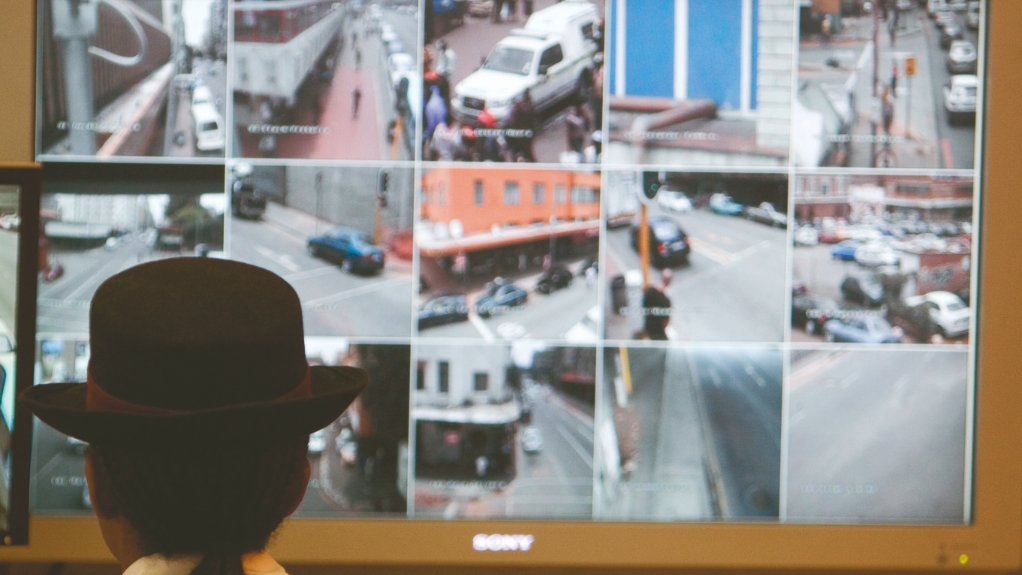Lobby group AfriForum has described the by-law on privately owned closed-circuit television (CCTV) cameras as a blatant power grab disguised as regulation, calling on the High Court to declare the by-law unconstitutional, unlawful and invalid.
Last week, the civil rights organisation brought a court application to challenge the Johannesburg metropolitan municipality’s controversial CCTV cameras by-law. The organisation is seeking a court order to have the by-law set aside in its entirety, with costs against the Johannesburg metro.
The by-law seeks to regulate and control CCTV networks installed in public spaces and private property of which the range and angle of coverage includes public space.
The use of traditional CCTV cameras, drones, automatic number plate recognition systems and even body-worn cameras will be regulated by this by-law.
“This by-law is a blatant power grab disguised as regulation. It is nothing more than an attempt to seize years of private investment, undermine the right to privacy and centralise surveillance power in the hands of a municipality that has consistently failed to uphold public safety,” said AfriForum’s chief spokesperson for community safety Jacques Broodryk.
The by-law was passed by the City Council in February, with the meeting minutes showing support from 15 parties, including the African National Congress, ActionSA, Economic Freedom Fighters and Patriotic Alliance, and dissent by two parties, the Democratic Alliance and the African Christian Democratic Party.
The by-law allows city officials to demand access to private CCTV infrastructure, dictate fees and tariffs and even confiscate or destroy cameras without a court order.
It also creates sweeping powers for undefined “authorised officials” to access surveillance data, control private security networks, and restrict the legal use of footage collected by community and commercial systems.
AfriForum argued in its court documents that the Johannesburg metro failed to conduct proper public participation, as required by the Municipal Systems Act.
Broodryk said the by-law infringed on several constitutional rights, including the rights to privacy, property, security, freedom of trade and administrative justice.
He said there was no legal or constitutional mandate allowing a municipality to regulate or charge fees for private security infrastructure on private property; and that tariffs and permit systems were “irrational and arbitrary”, with no justification, since the Metro does not render or maintain the services in question.
He added that key sections of the by-law are “incomplete, vague and impossible” to comply with, including references to missing application forms and schedules.
AfriForum also argued that the by-law undermined the Private Security Industry Regulation Act and the Protection of Personal Information Act by imposing additional restrictions on private data use and surveillance operations.
“This case shows that the core issue in public safety is not a lack of regulation but a lack of enforcement and rampant political interference. The fact that the Metro now wants to hijack community-run camera networks without offering a cent in compensation is just another form of expropriation without compensation,” stated Broodryk.
AfriForum proposed that rather than seizing private infrastructure, the Metro should work with voluntary safety networks such as AfriForum’s neighbourhood watches, which operate CCTV and patrol systems in areas such as Roodepoort and Johannesburg North, providing real-time data and assistance to law enforcement.
Earlier this month, the Organisation Undoing Tax Abuse (Outa) urged the City of Johannesburg (CoJ) to overturn its new by-law on CCTV cameras, describing it as unworkable, convoluted and irrational and arguing that it placed unreasonable burdens on private businesses and residents, while it raised privacy concerns.
The organisation headed to court to challenge the legality of the by-law, which sets up convoluted rules requiring registration and City access to private data.
Outa’s case, against the City, and the City’s municipal manager and mayor, was filed in the Johannesburg High Court on 18 June.
EMAIL THIS ARTICLE SAVE THIS ARTICLE ARTICLE ENQUIRY FEEDBACK
To subscribe email subscriptions@creamermedia.co.za or click here
To advertise email advertising@creamermedia.co.za or click here











